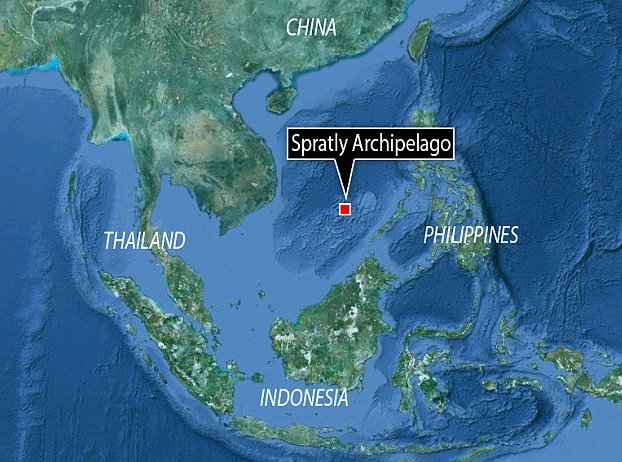Case Study #2 - Information Operations (IO) & China
psychology·@fugetaboutit·
0.000 HBDCase Study #2 - Information Operations (IO) & China
 In continuing my series on IO applications in contemporary geopolitics, I will examine a potential scenario involving tensions between the US and China. In this example, I will examine operations from the US strategic aims and goals which are almost always centered on business interests as the guiding principle behind foreign policy. The United States should use principles of compliance theory to dissuade China from its expansion in the South China Sea, especially regarding the buildup of artificial islands. China, seeking to restore its Golden Age of Asian dominance, is dredging reefs in the disputed Spratly Island archipelago. Creating islands from shallow reefs, China claims the territory and the accompanying twelve miles of coastal sovereignty (Beech 2017). The international community, led by the U.S. and its East Asian allies, largely oppose China’s activities. However, the U.S. response has been rather clumsy. It is marked by military posturing and its freedom of navigation (FON) operations that annoy—rather than deter— Chinese officials. <center>  </center> To better achieve its goal of preventing Chinese eastward expansion, the U.S. should refer to several techniques related to compliance theory. Several of Robert B. Cialdini’s theories from his book Influence: Science and Practice apply. U.S. policy makers and statesmen to China should keep in mind the principles of “scarcity,” “consistency,” and “likability” (Cialdini, 2009). Rather than examples of success, the U.S. is struggling to employ—or acting in direct contrast to—these principles of compliance theory. These first three principles are either poorly applied or working to the detriment of the United States. Scarcity means that items of lesser availability are perceived greater in value (Cialdini, 2009, p. 200). When the United States tells China it cannot build on the Spratly archipelago, the territory is viewed as more valuable. This increases China’s internal motivation to build despite the U.S. telling it to cease; Cialdini calls this “psychological reactance” (Cialdini, 2009, p. 209). U.S. FON operations that violate China’s newfound, twelvemile sovereignty (from a Chinese perspective) also reinforces the value of the islands. FON makes the U.S. seem like the aggressor, deliberately flouts Chinese sovereignty, and makes the U.S. less likable. Cialdini writes that one can more easily persuade another if the other party likes you, but threatening military action is less than friendly behavior (Cialdini, 2009, p. 144). This tactic follows more along the lines of a coercive strategy, but it has not been successful in achieving Chinese compliance with U.S. desire. In fact, FON may provide the Chinese with a propaganda tool. Veracity, or truthfulness, is a necessary component of propaganda, but that “truth” is often filtered to show a message (Ellul, 1973, p. 52). A fact like a U.S. ship navigating within ten miles of the artificial island Fiery Cross Reef can become the kernel necessary to build a piece of propaganda that rings true. China could also cherry pick rules from the international rule book while ignoring others. It could use the fact that the UN Convention on the Laws of the Sea stipulates twelve miles of ocean perpendicular to a coastline is the sovereign territory of that state to justify its position while ignoring the fact that the International Court at The Hague ruled Chinese activities illegal. Combine the fact with a partial truth, and China comes away with a seemingly compelling defense of its activities. To achieve a better results, the U.S should abandon the FON operations that cross within disputed Chinese territories. Instead it should focus on building relationships with the rising debutante China, even at the risk of offending other East Asian states. By creating solid links, the U.S. may be able to positively leverage the principle of reciprocity to ensure China’s rise leads to compounding dividends for the U.S. <B>References:</B> Beech, Hannah (2016). “What's New on China's Artificial Islands in the South China Sea? Basketball Courts.” Time. Web. Cialdini, Robert (2009). Influence: Science and Practice. Boston, MA: Pearson. Ellul, Jacques (1973). Propaganda: The Formation of Men’s Attitudes. New York: Vintage Books
👍 fugetaboutit, cryptopassion, paperbackbook, dilkhan, cryptowarrior88, shaka, currencycrypto, transcript-junky, fortir, szokerobert, yanosh01, amanat1993, lukakorba, shinidanitv, bestssnahid4, resteemsteem, bahadd12, jamesbd, samotonakatoshi, ninaflowers, jondoe, sambarkitchen, yazanstorm, jonesteemit, mcsamm, joao-cacador, catherinesimmons, ivone-cacador, mam, avii, jist,